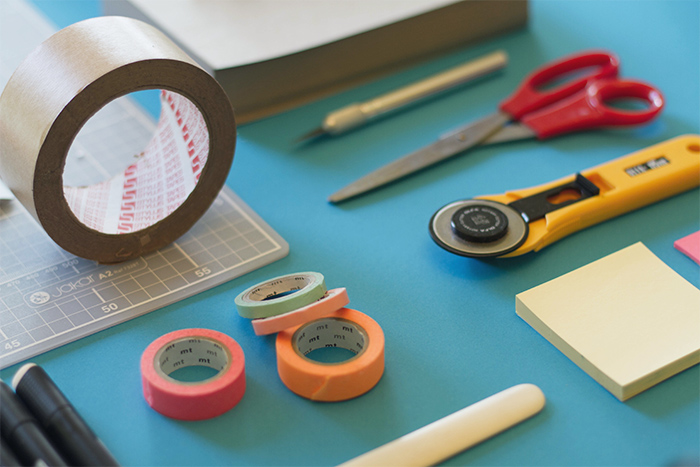Very few people actually enjoy public speaking. Most of us would avoid it if possible. And a few of us downright hate it, and would do almost anything to avoid ever having to talk in front of a group of people ever again.
Even thinking about public speaking can fill us with dread: what if my mind goes blank? What if the words refuse to come out? What if I have a full-blown panic attack, pass out, and knock my teeth out on the podium before crashing into a pathetic ball on the floor?
Public Speaking Tips
But wait. Take a step back. Have you ever seen any of those things happen? Of course not. At worst, someone stumbles over a few words, or briefly forgets a fact or two.
We’ve all seen it. We’ve all probably done it. And yet life goes on.
So what’s with the presentation anxiety here? Public speaking can’t hurt you. We don’t think that anyone ever died from forgetting their lines, yet that dread, for some, remains. It’s all in our heads. And that’s great news, because we have an arsenal of tips to help banish those public speaking demons forever.
Get The Right Tools for The Job
Confidence is everything. Even if you don’t feel self-assured in your own speaking abilities, you can be confident in what you’re speaking about when you’ve prepared it in advance.
A great presentation will do most of the work for you. Ideally, you’ll have an engaging and memorable presentation, full of beautiful data visualisation and interactive wizardry.
But if not, there’s still lots you can do to stack the odds of an excellent speech or presentation in your favour.
Plan for Success
The most important thing is that you know your subject. Inside out. Back to front. When you’re an expert on your subject, from a best-man speech to a detailed product launch, you are prepared for almost any eventuality.
So make sure that you know what you’re talking about.
Then it’s time to hone your delivery skills. Rehearse. Practice. Deliver your speech to your family, your friends or even the mirror. Fire up Skype and present to your mum.
With groundwork like this, even in the unlikely event that you lose your notes or your laptop decides not to boot, you can still think on your feet and deliver the basics.
You can keep this skill going by volunteering to speak during any team meetings or work events so that you’re always at the top of your game.
The more you present, the easier it will come, and your improved self-confidence could bleed through to other areas of your life – social functions, interviews and so on.
More Than Standard Delivery
So you know your stuff, and your PowerPoint design looks great. The next part is your delivery.
It’s OK to be nervous. Everyone is: some people can just hide it better than others.
What’s important is how well you engage with your audience. The simple fact is that they want entertaining. No matter how interesting your subject, if you keep your head down and mumble through a full script word for word, they could end up getting bored.
So stand up straight, look directly at your audience, and say it as if you mean it.
Starting is the hardest part, so take a few deep breaths to slow your heart rate and give your body the oxygen it needs to perform. Take a deep breath, hold it for a few seconds, and then let it out slowly.
Perfect. After the first few words, the rest is easy.
Now, where to look? Scanning your eyes from left to right and back again works best for some people – every member of the audience feels as though you’re speaking directly to them, which really helps with engagement.
Some people find this hard, so try to pick out a friendly face, or just focus on a spot on the back wall. If it helps to pretend that you’re just talking to one person, then it’s fine to do that, too.
Going Off Script
Try speaking from memory as much as you can – use a few prepared cues to remind you of the key themes and perhaps any important facts and figures. This approach makes you seem more composed, natural and professional to your audience, and will really help to build your public speaking skills.
If you lose your place, or forget where you are, don’t panic. Take a breath, refer to your notes and start again. Pauses are perfectly natural in the way we speak, and help to let each point sink in.
In fact, even if you’re in full flow and remembering everything perfectly, it’s a good idea to add small breaks into your speech. If your mouth is moving as fast as your thoughts, you could be talking a little too quickly for your audience
Remember: deep breaths, pauses between sentences, and longer between different themes. Some people find it useful to count to two between each sentence to keep a steady rhythm going.
And while we’re on the subject, don’t forget to smile! Putting a smile on your face can help to put your audience at ease, which helps them listen to what you’re saying. And that, in turn, helps you to relax and give a better speech.
Don’t be afraid to move around, either. Own that space: make use your hands when presenting, walk around and change direction to add energy and passion to your words. Add some personality, and try to enjoy yourself: your audience will appreciate it and reciprocate the feeling.
You Can Do It!
Finally, remember that no one is there to see you fail. Have you ever been in the audience when a speaker has fluffed their lines or lost their place? And were you secretly laughing at them and thinking they were an idiot? Of course not – you willed them to gain their composure and get right back into it.
Remember, your audience is on your side. They know how tough it can be to speak in public and are full of admiration that you’re even up there in the first place. They probably won’t even notice any tiny slips, and are as keen to see you do a great job as you are.
Conclusion
For some, speaking in public can be tough. But when you’ve fully prepared, things can get a whole lot easier.
Spending a bit of time learning your subject, preparing a great presentation (if it’s appropriate) and working on your delivery skills can make public speaking a lot less scary and a lot more effective. With practice, a solid presentation can be an invaluable business asset and a fantastic personal life skill.







